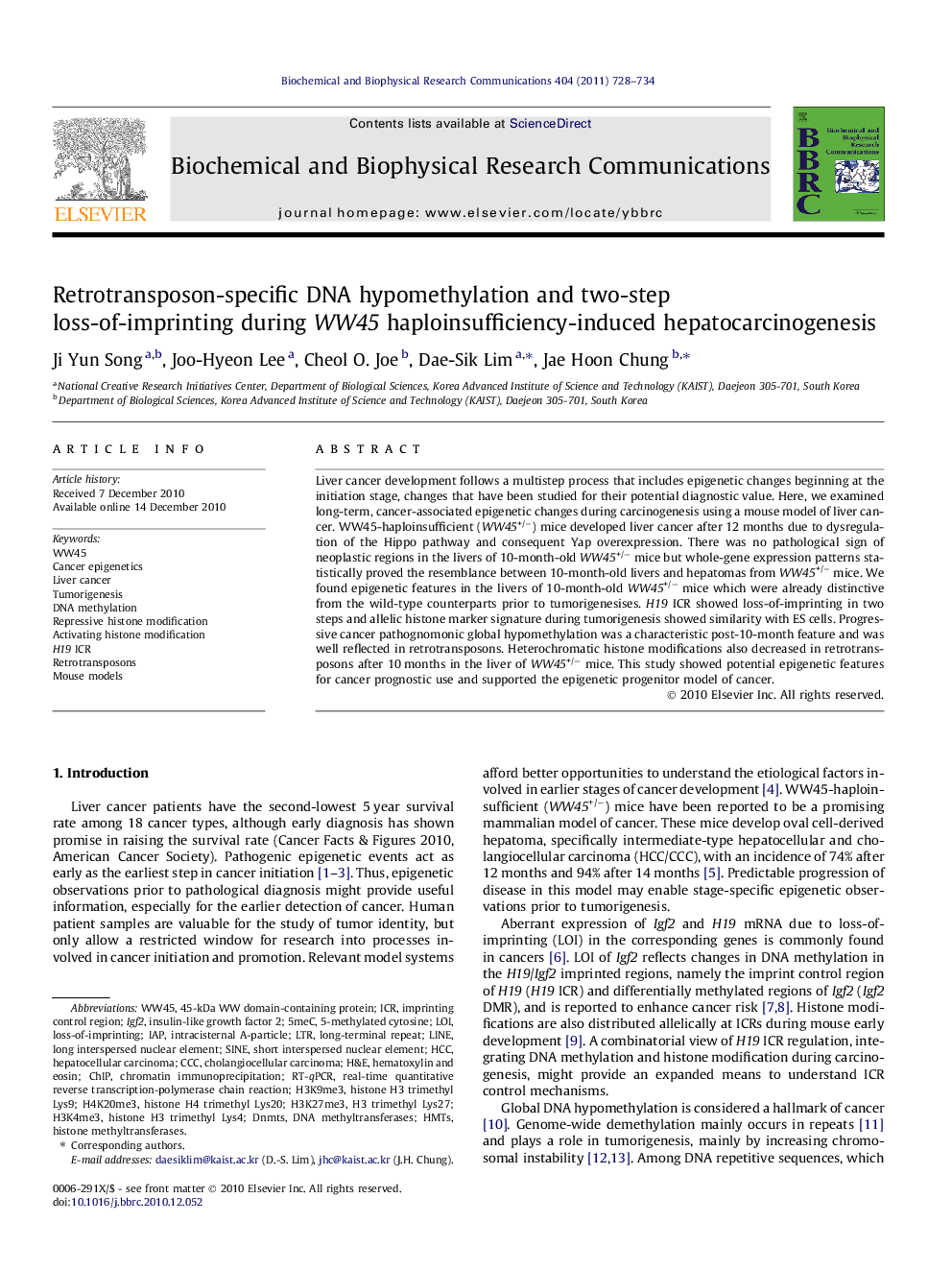| Article ID | Journal | Published Year | Pages | File Type |
|---|---|---|---|---|
| 1930728 | Biochemical and Biophysical Research Communications | 2011 | 7 Pages |
Liver cancer development follows a multistep process that includes epigenetic changes beginning at the initiation stage, changes that have been studied for their potential diagnostic value. Here, we examined long-term, cancer-associated epigenetic changes during carcinogenesis using a mouse model of liver cancer. WW45-haploinsufficient (WW45+/−) mice developed liver cancer after 12 months due to dysregulation of the Hippo pathway and consequent Yap overexpression. There was no pathological sign of neoplastic regions in the livers of 10-month-old WW45+/− mice but whole-gene expression patterns statistically proved the resemblance between 10-month-old livers and hepatomas from WW45+/− mice. We found epigenetic features in the livers of 10-month-old WW45+/− mice which were already distinctive from the wild-type counterparts prior to tumorigenesises. H19 ICR showed loss-of-imprinting in two steps and allelic histone marker signature during tumorigenesis showed similarity with ES cells. Progressive cancer pathognomonic global hypomethylation was a characteristic post-10-month feature and was well reflected in retrotransposons. Heterochromatic histone modifications also decreased in retrotransposons after 10 months in the liver of WW45+/− mice. This study showed potential epigenetic features for cancer prognostic use and supported the epigenetic progenitor model of cancer.
Research highlights► Pre-tumor epigenetic changes occur earlier than tumor pathogenesis. ► A two-step DNA methylation change occurs in H19 ICR during tumorigenesis. ► Allelic histone signature of H19 ICR in het10m/het12mT is similar to that of ES cells. ► Global hypomethylation is related to a decline in H3K9me3 in retrotransposons.
